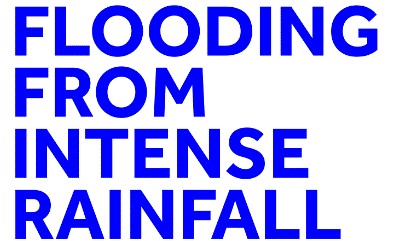Dataset
FRANC: Doppler radar radial wind observations and associated observation-minus-model residuals from the Met Office UKV 3D Var assimilation scheme
Abstract
The dataset is provided to support the publication 'Diagnosing Observation Error Correlations for Doppler Radar Radial Winds in the Met Office UKV Model Using Observation-Minus-Background and Observation-Minus-Analysis Statistics' by Waller et al (2016). The dataset was created as part of the NERC Flooding from Intense Rainfall (FRANC) project in order to study the observation uncertainties associated with Doppler radar radial wind observations assimilated in to the Met Office UK variable resolution model. The dataset is processed output of the Met Office UKV 3D var assimilation scheme for June, July and August 2013 for four different experimental scenarios. Full details and equations are given in Waller et al (2016) but the four different experimental cases are summarised as follows:
- Case 1: Control experiment using standard UKV settings in place in January 2014
- Case 2: As Case 1, but with a different background error covariance matrix used in the data assimilation
- Case 3: As Case 1, but with raw Doppler radial wind observations rather than superobservations
- Case 4: As Case 3, but with an improved observation operator.
For each case the dataset consists of the radial wind observations assimilated at each assimilation cycle valid between 01/06/2013 and 31/08/2016 along with the associated observation-minus-background and observation-minus-analysis residuals. Each observation also has metadata that describes the location of the observation (both in latitude/longitude co-ordinates, and co-ordinates relative to the radar station) , the assimilation cycle at which it was assimilated and the observation error variance that the observation was assigned in the data assimilation scheme.
These data are published under the Open Government License (http://www.nationalarchives.gov.uk/doc/open-government-licence/version/3/) © Crown Copyright, 2020, Met Office”.
Details
| Previous Info: |
No news update for this record
|
|---|---|
| Previously used record identifiers: |
No related previous identifiers.
|
| Access rules: |
Public data: access to these data is available to both registered and non-registered users.
Use of these data is covered by the following licence(s): http://www.nationalarchives.gov.uk/doc/open-government-licence/version/3/ When using these data you must cite them correctly using the citation given on the CEDA Data Catalogue record. |
| Data lineage: |
Observation data were quality controlled, superobservations were created and superobservations quality controlled before being assimilated with Met Office UKV background data. The data assimilation output was then prepared for archiving before upload to the Centre for Environmental Data Analysis (CEDA) for long term archiving. |
| Data Quality: |
Observation uncertainty is given within the data files themselves, but resulting model uncertainties are not provided. See Waller et al. (2016) paper for further details.
|
| File Format: |
Data are BADC-CSV formatted.
|
Related Documents
Citations: 1
The following citations have been automatically harvested from external sources associated with this resource where DOI tracking is possible. As such some citations may be missing from this list whilst others may not be accurate. Please contact the helpdesk to raise any issues to help refine these citation trackings.
| Fowler, A.M., Simonin, D. & Waller, J.A. (2020) Measuring Theoretical and Actual Observation Influence in the Met Office UKV: Application to Doppler Radial Winds. Geophysical Research Letters 47. https://doi.org/10.1029/2020gl091110 https://doi.org/10.1029/2020gl091110 |
Process overview
Instrument/Platform pairings
| Met Office C-band radar | Deployed on: Clee Hill Radar Station, UK |
Instrument/Platform pairings
| Met Office C-band radar | Deployed on: Dudwick Radar Station, UK |
| NIMROD system | Deployed on: Dudwick Radar Station, UK |
Instrument/Platform pairings
| Met Office C-band radar | Deployed on: Cobbacombe Cross Radar Station, UK |
Instrument/Platform pairings
| Met Office C-band radar | Deployed on: Ingham Radar Station, UK |
Instrument/Platform pairings
| Met Office C-band radar | Deployed on: Holehead Radar Station, UK |
Instrument/Platform pairings
| Met Office C-band radar | Deployed on: Drium a'Starraig |
| NIMROD system | Deployed on: Drium a'Starraig |
Computation Element: 1
| Title | Data assimilations run for FRANC: Doppler radar radial wind observations and associated observation-minus-model residuals from the Met Office UKV 3D Var assimilation scheme |
| Abstract | The datasets were created by assimilating observations from the Met Office network of C band radars into the Met Office variable-resolution convection permitting model (UKV) using version 8.2 of the unified model. The assimilation scheme is a limited-area version of the Met Office 3D variational assimilation scheme that uses an incremental approach. We note that four datasets are provided to correspond with four different experiments. Further details of the observation, model, data assimilation and four experimental cases are given in Waller et al. 2016. |
| Input Description | None |
| Output Description | None |
| Software Reference | None |
| Output Description | None |
| Output Description | None |
| Output Description | None |
| Output Description | None |
| Output Description | None |
| Output Description | None |
- units: ms-1
- long_name: Doppler_radar_radial_wind_velocity
- units: m
- standard_name: height
- long_name: Height
- units: degrees
- long_name: beam_elevation
- long_name: observation_error_variance
- units: m2s-2
- units: ms-1
- long_name: observation_minus_analysis
- units: ms-1
- long_name: observation_minus_background
- units: m
- long_name: radar_altitude
- long_name: radar_azimuth
- units: degrees from N
- units: 1
- long_name: radar_id
- units: m
- long_name: range_from_radar
Co-ordinate Variables
- standard_name: time
- units: hours
- long_name: assimilation cycle time
- units: degrees
- standard_name: latitude
- long_name: lat
- units: degrees
- standard_name: longitude
- long_name: lon
Temporal Range
2013-06-01T00:00:00
2013-08-31T23:59:59
Geographic Extent
59.1000° |
||
-7.9000° |
2.1000° |
|
50.0000° |

